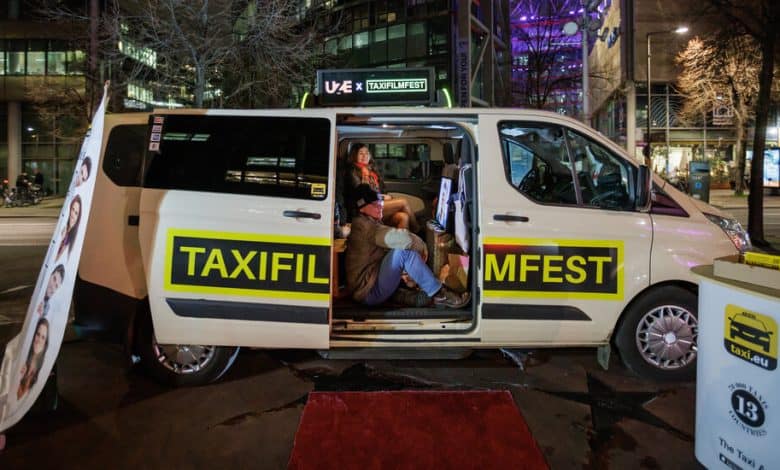A Film Festival in the Back of a Taxi

Some of international cinema’s biggest names gathered on Tuesday night at the Berlin International Film Festival as the event honored Martin Scorsese with a lifetime achievement award. Wearing a tuxedo, Scorsese listened as the German director Wim Wenders gave a speech to an audience including celebrities and local dignitaries.
Just around the corner, parked in the middle of a busy thoroughfare, a group of Berlin’s taxi drivers crammed into the back of a worn-out taxi van to watch a double-feature capped by Scorsese’s 1976 movie “Taxi Driver.”
Klaus Meier, who has been driving a cab in Berlin since 1985, handed out bottles of soda and beer, popping the caps with the blade of a pocketknife. Irene Jaxtheimer, who runs a taxi company, passed around homemade popcorn. A generator outside the cab powered a modest television, a DVD player and a small electric heater.
The unconventional screening, just outside a centerpiece event for one of Europe’s most prestigious film festivals, was part of the makeshift TaxiFilmFest. Running through Sunday, it is partly a protest over the miserable state of the taxi industry these days and partly a counterfestival to celebrate the taxi cab’s iconic place in the urban cultural landscape.
It’s also in objection to an exclusive partnership deal between the festival, known locally as the Berlinale, and the ride-hailing giant Uber to ferry filmmakers between the city’s movie theaters during the event. The deep-pocketed Silicon Valley company has drawn the ire of traditional cabdrivers the world over, and the protesters who packed in for the TaxiFilmFest screenings were railing against what they see as a too lightly regulated rival.
Beeping horns from the busy street outside — some of them coming from sleek black Uber vehicles emblazoned with the Berlinale logo — blended with the street scenes from “Taxi Driver” playing on the tinny television speakers. “Ah, I really miss those mechanical fare boxes!” Meier said as the fares ticked away in the onscreen cab of the movie’s unhinged antihero, Travis Bickle, who drives around mid-’70s New York with growing hatred and menace.
